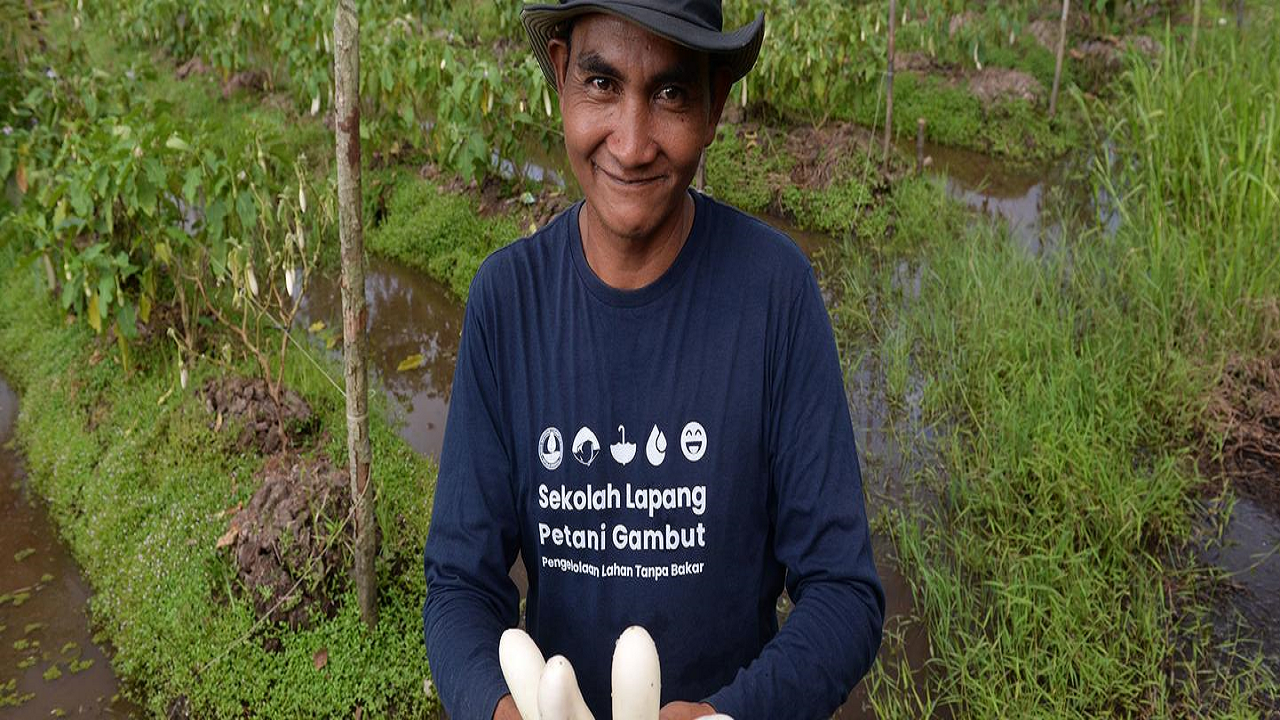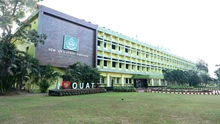
Positive developments are underway: a school structure was rescued from a fire disaster, agricultural practitioners are experiencing a 50 per cent surge in earnings, and a more robust peatland is curbing the release of greenhouse gases. Since its initiation in 2019, the initiative, encompassing education for local inhabitants and essential enhancements to infrastructure has significantly lessened the threat of fires. This effort has also empowered residents from 121 coastal villages in West Kalimantan through new knowledge and tools, thereby contributing positively to their communities.
Training On Non-Burning Agriculture
Farmers in Limbung and Jongkat villages, located on peatlands in Indonesia, have gained knowledge through training on non-burning agriculture. Suprapto from Limbung mentioned learning cultivation techniques without resorting to burning, and Sumi from Jongkat praised the comprehensive market research by BRGM and partners that helped them choose suitable cash crops. Peatlands, rich in carbon, are prone to fires that harm communities and release carbon dioxide. Despite a government ban on burning in peatlands, the lack of alternatives led to 245 fires in the Limbung district in 2021.
Empowering Farmers, Sparing Peatlands: A Remarkable Decrease in Fires and New Avenues of Prosperity
Expanding farmers' options has led to a significant reduction in fires, with only 21 incidents last year. Despite progress, the goal remains to eliminate fires and restore peatland. BRGM's efforts restored moisture to peatland near Limbung, enabling crop cultivation like cucumbers, tomatoes, chilli peppers, and eggplants. Horticulture has boosted income by 50%, allowing families to renovate homes, buy motorcycles, and support education. In Jongkat, with BRGM, an NGO, and UNOPS assistance funded by Norway, farmers adopt non-burning agriculture. Around 20 families received training and now share these techniques, making Jongkat's farming expertise valuable.
Empowering Sustainable Agriculture and Water Management in West Kalimantan
Training local residents in non-burning agriculture is crucial for sustainable coastal villages in West Kalimantan. Improving irrigation infrastructure to retain rainwater in peatlands is equally important.
UNOPS funded and designed experimental canal blockers, solid structures in intersecting canals, preserving water year-round for firefighting and irrigation. Better irrigation prevents soil cracking, drying, and emitting less carbon dioxide. Peatland restoration involves re-vegetation to maintain soil moisture and reduce fire risk.
With government funding and following UNOPS, BRGM built 179 canal blockers in 27 local villages. UN input was valuable, aiding local adaptation and design improvements, leading to the cost-effective implementation of canal blockers.
Collaborative Restoration Efforts: BRGM, UNOPS, and Local Communities Join Forces for Peatland Protection and Livelihood Enhancement
With the assistance of UNOPS, the Ministry of Forestry, and other stakeholders, BRGM has undertaken restoration initiatives in 852 villages across Kalimantan, Papua, and Sumatra. However, there remain thousands of villages untouched.
While the outcomes have been positive, they are not yet sufficient, as stated by Raharjo. According to Akira Moretto, the acting Country Manager of UNOPS Indonesia, the engagement of local communities is vital for achieving success at every phase. He emphasized that enforcing fire prevention is challenging, whereas involving communities in non-burning agriculture proves more effective in safeguarding peatlands, combating climate change, and enhancing livelihoods. Such an approach demands ongoing dedication from all parties in the long run.









